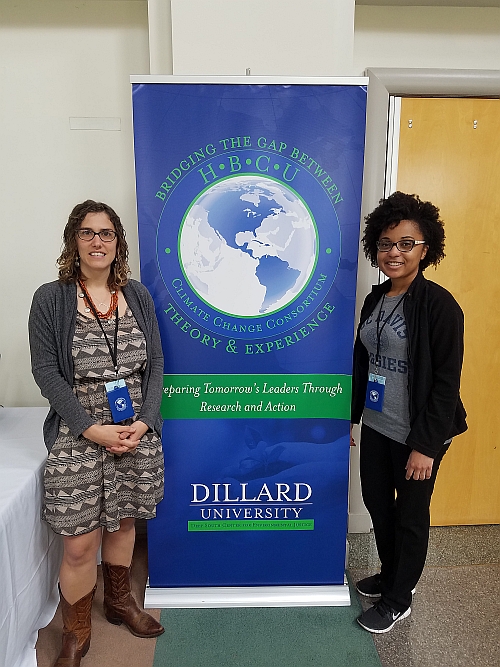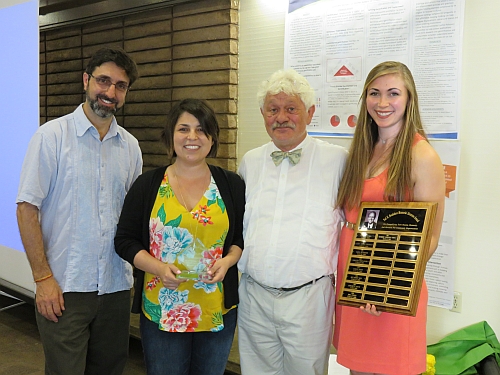
Community development is the process of working with groups of people to achieve common goals. Traditionally the field has focused on grass-roots work within place-based communities to improve social equity, economic opportunity, living conditions, public health, environmental justice, and other aspects of social welfare. Helping people overcome poverty and disadvantage has been a major objective. However, in our increasingly complex world new sorts of community continually emerge, including dispersed networks and virtual communities. Professionals must now draw from a wide range of skills, knowledge, and theory to determine the most useful strategies within each context. Graduate education within a program such as ours can help community development practitioners and scholars contribute to social change in the most effective and personally fulfilling ways.
For nearly 40 years UC Davis’ Community Development Graduate Group has combined social theory and scientific research with the acquisition of practitioner skills. In our program we aim to integrate learning, action, and reflection. This model of community development education is relevant to social workers, urban planners, community designers, environmental activists, union leaders, organizers, and many others who seek to be more effective in their social change work.
We provide a two-year Master's of Science (MS) Degree in Community Development. Our program is flexible and interdisciplinary, with core courses in Community Development, affiliated courses across multiple departments, and opportunities for students to customize their own programs of studies. Particular strengths of our program include:
- Affiliated world-class faculty from 18 campus departments and programs, including Community and Regional Development, Landscape Architecture, Sociology, Chicana/o Studies, American Studies, Education, Medicine, the Agricultural Sustainability Institute, Environmental Sciences and Policy, and UC Extension
- Strong links with a range of public, non-profit and community organizations in the Sacramento Region and throughout northern California. Our region provides a living laboratory for addressing a range of community development challenges and opportunities. Recognized by Time Magazine as "America's Most Diverse City", Sacramento is simultaneously capital of a state with the seventh largest economy in the world, a node in diverse trans-national diasporas reaching across the globe (students in the Sacramento school district speak more than 70 different languages), and the core of a dynamic metropolitan region striving to grow sustainably and equitably in the 21st century.
- Deep connections in the city of Davis itself. Known as the most bicycle friendly town in the country, Davis has a long-term commitment to sustainable community development, and features pioneering examples of cohousing, smart growth, sustainable food systems, and social responsibility. It is also a delightful community in which to live.
- Close collaboration with the Center for Regional Change (CRC), which brings together faculty, students, and communities to collaborate on innovative research to create just, sustainable, and healthy regional change in California's Central Valley and Sierra Nevada. The Center offers students opportunities for both paid work and internships in CRC related projects. Current projects relate to environmental justice, affordable housing, regional equity, population change, air quality, art and regional change, California labor studies, and youth development.
- A new collaboration with the Geography Graduate Group, which has involved creating a Community and Regional Development area of concentration with the Geography Ph.D program. For Community Development students who are interested in pursuing academic careers, this provides an integrated path to a doctoral degree in a strongly allied field.
- Strong links with the Agricultural Sustainability Institute, a hub that links initiatives and education in sustainable agriculture and food systems across the University and with partners across the State of California. Students interested in community gardens, rural community development, healthy communities, local food and other aspects of sustainable agro-food systems have found this collaboration to be particularly valuable.
Achieving Diversity and Inclusion

The Community Development Graduate Group at UC Davis values a diversity of viewpoints, backgrounds, and experiences among its students—as this diversity strengthens and enriches our research, scholarship, and teaching. Courses across the CDGG curriculum provide opportunity for students to critically reflect upon the ways in which issues of race, ethnicity, class, gender, national origin and other factors shape individual and social outcomes. A diverse graduate student population and faculty membership also enhances the academic experiences for all students. Our group encourages interactions, interdisciplinary work, and group activities outside of class and students' primary research emphasis. We are committed to achieving diversity and a multicultural academic environment that supports the success of all graduate students.
Please browse the rest of our website. If you would like additional information, contact Carrie Armstrong-Ruport, our Graduate Coordinator, at 530-752-4119, caruport@ucdavis.edu. We encourage admissions applications from a diverse range of potential students. We have an annual application cycle and the deadline for application submission is January 15.
Thank you for your interest!